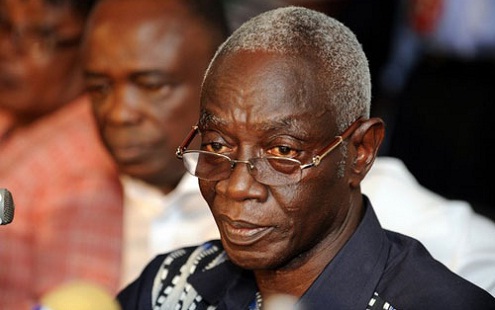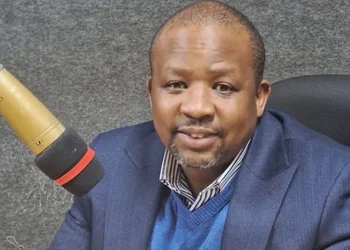A former Chairman of the Electoral Commission (EC), Dr Kwadwo Afari-Gyan, is suggesting an amendment of sections of the 1992 4th Republican Constitution. At a Constitution Day public lecture to reflect Ghana’s democracy, Dr Afari-Gyan mentioned three areas; local government, the Council of State and the separation of powers between the Executive and the Legislature.
It’s been 3 decades of Ghana’s Constitution and this guiding document has been widely criticised for gaps which some believe have rendered it ineffective in yielding Ghana’s expected good governance and development aspirations.
Even though Article 78 (1) of the 1992 Constitution states in part that Ministers of State shall be appointed by the President with the prior approval of parliament from among members of parliament or persons qualified to be elected as members of parliament, Dr Afari-Gyan believes that drawing a majority of Ministers and Deputy Ministers from parliament is a threat to separation of powers. He says it is necessary to have a different strategy for appointment.
When he mounted the podium the Constitution Day Public Lecture on January 8, 2023, he said, “With about half of the ministers plus some of the deputy ministers drawn from parliament, the legislator can not effectively check the Executive.”
Dr. Afari Gyan pointed out that this arrangement makes it difficult for the Legislature to fulfill its intended role in scrutinizing and controlling the Executive branch. He added, “Cabinet decisions are binding on ministers and deputy ministers, and they must be defended by them, including in parliament.
The former EC boss highlighted how the current requirement to appoint many ministers from Parliament primarily benefits the President. According to him, this setup makes it easier for the President to get policies approved without facing significant hindrance.
“Indeed, the requirement to appoint so many ministers from Parliament may be an incentive for a president to increase the number of ministers in order to minimise potential trouble with parliament,” he said.
Expressing his perspective on a potential solution, he called for a system where ministers and their deputies are appointed from outside parliament.
He argued that such an arrangement would be better suited to uphold the principle of checks and balances, ensuring a more effective oversight of the Executive by the Legislature.
“I think that a system where ministers and their deputies are drawn from outside parliament will be better suited to holding the Executive in check,” Dr. Afari-Gyan emphasized.
















